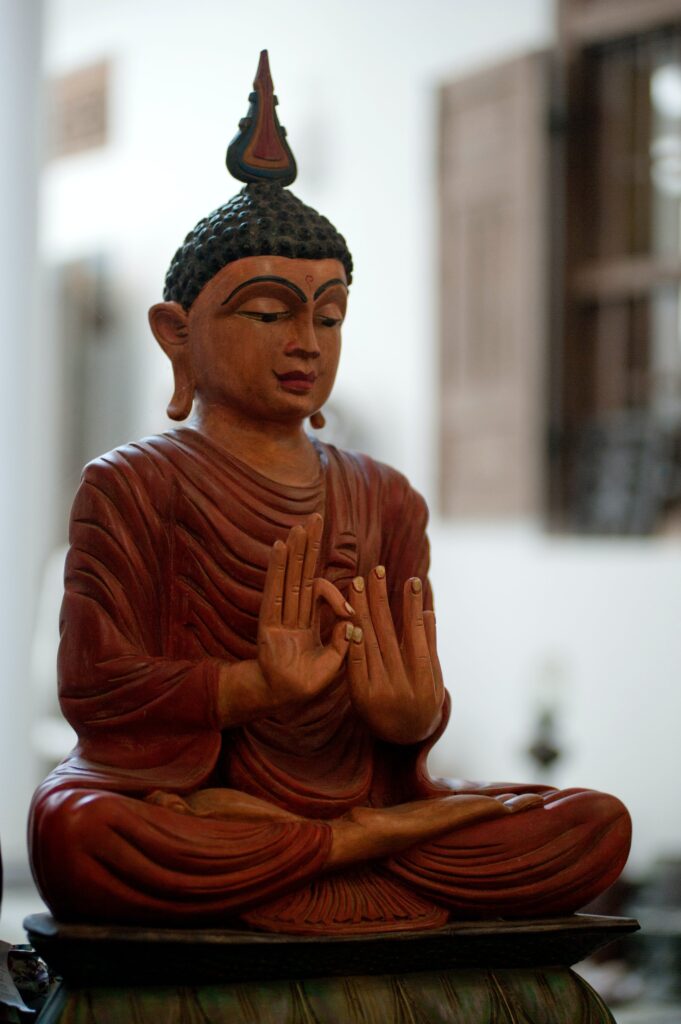Introduction:
Have you ever wondered about the positive impact the Buddhist principle of Karuna (compassion) could have in our world? I have, and I found a nonprofit founded by former U.S. President Jimmy Carter to be a shining example of an organization that creates profound compassionate impact from their work. Let me introduce you to The Carter Center, a nonprofit founded by former U.S. President Jimmy Carter. The organization serves as an international leader, advancing human rights, resolving conflicts, promoting public health, and eradicating infectious diseases globally.
As we explore Karuna and The Carter Center, we see how compassion manifests in various forms, uniting disparate corners of our global community.
The Essence of Karuna:
Karuna, the Pali word for compassion, lies at the heart of Buddhist philosophy. It goes beyond mere empathy, encompassing the active desire to alleviate suffering. The Buddha himself exemplified Karuna, emphasizing the interconnectedness of all living beings and encouraging followers to cultivate compassion in their actions.
Now, imagine the ripple effect of such compassion extending beyond the walls of a monastery to touch the lives of millions. This is precisely what we witness in the endeavors of The Carter Center, where the spirit of compassion becomes a driving force for positive change.
The Carter Center’s Compassionate Quest:
1. Observing Elections:
The Carter Center’s commitment to democracy aligns with the compassionate values of inclusivity and fairness. By observing elections globally, the organization ensures that the voice of every citizen is heard and respected. In doing so, The Carter Center upholds the principles of Karuna by promoting a just and transparent democratic process.
2. Strengthening Democracy Beyond Elections:
Compassion, in the form of democratic values, extends beyond election cycles. The Center’s support for democratic institutions echoes the Buddhist idea of creating systems that uphold the rule of law and human rights. Through civic engagement and dialogue, The Carter Center fosters an environment where compassion thrives in the governance of nations.
3. Advancing Human Rights:
Karuna, as portrayed in The Carter Center’s advocacy for basic human rights, resonates with the Buddhist belief in the inherent dignity of all individuals. The Center actively champions the cause of human rights defenders globally, standing firm against oppression and injustice.
4. Mediating Conflict:
Drawing parallels with the Buddha’s teachings on peace, The Carter Center acts as a mediator in conflicts worldwide. Whether negotiating peace treaties or facilitating dialogue between conflicting parties, the organization exemplifies the transformative power of compassion in resolving conflicts and alleviating the suffering of affected communities.
5. Assisting China Village Elections:
The Center’s involvement in China’s village elections reflects a compassionate approach to social and political order. By standardizing election procedures and providing training, The Carter Center contributes to the well-being of communities, aligning with the Buddhist principle of communal harmony.
6. Health Programs:
The Carter Center’s health programs mirror the Buddha’s emphasis on alleviating physical suffering. From eradicating Guinea worm disease to controlling malaria, the organization actively engages in preventing and treating illnesses, embodying the essence of Karuna in action.
7. Reducing Stigma of Mental Illness:
Rosalynn Carter’s dedication to reducing the stigma of mental illness echoes the Buddhist idea of compassion towards those facing invisible struggles. By advocating for equitable mental health policies and raising awareness, The Carter Center works towards a world where compassion extends to the realm of mental well-being.
Conclusion:
As we conclude our exploration, we find that the threads of Karuna weave through the fabric of The Carter Center’s initiatives. From observing elections to eradicating diseases, the organization’s actions embody the essence of compassion, and the teachings of Buddhism. In a world with great turmoil, The Carter Center stands as a testament to the transformative power of compassion, proving that the pursuit of alleviating suffering knows no boundaries.
The true measure of compassion lies not merely in understanding suffering but in actively working towards its alleviation. As we navigate the intricate web of global challenges, may we draw inspiration from the compassionate endeavors of The Carter Center and, in doing so, contribute to the collective well-being of our interconnected world.
